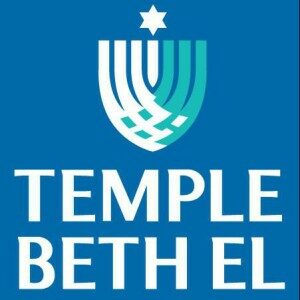by Ronald P. Townsend
Rabbi Jonathan once said something profoundly insightful in Talmud study which characterizes his approach to engagement. We were discussing intentionality in ritual, reviewing an ancient dialogue among the sages regarding how to respond to interruptions in prayer. In typical Talmudic fashion, the sages debate what constitutes a “serious” intrusion (such as an emergency) that would merit our reaction versus a trivial disruption that would not. Intrigued by this centuries-old back-and-forth, one of the study participants noted the constant distraction we face in the modern world and questioned where a phone call from a friend falls on the rabbinic scale? “Aren’t all conversations a matter of life-and-death?” replied Rabbi Jonathan. He explained that we never know who needs us to respond to a crisis or to lend support or understanding in that moment – what opportunities await us to change a life. We change the world by investing ourselves in relationships.
I love that story. It captures how Rabbi Jonathan uses sacred study, gleaning insight from texts hundreds of years old, to make Judaism alive and relevant to us here and now. It demonstrates how he nurtures relational Judaism to enrich the lives of congregants. It demonstrates a loyal friend, a trusted teacher, and a dedicated rabbi who has been so responsive to us during his time at Temple Beth El.
Rabbi Judy observes that Rabbi Jonathan’s “willingness to study with anyone and everyone, anywhere, has deepened the connection of countless individuals with our faith.” Similarly, Temple President Jack Levinson notes that, “Rabbi Jonathan has always reached out in a personal, warm way to our congregants.” His accessibility has been central to his rabbinate. Rabbi Judy notes that “he is happy to have coffee or lunch or dinner with any congregant . . . . he loves to get to know our Beth El members and form friendships with them.”
Rabbi Jonathan characterizes the “amazing connections between people . . . in times of celebration and times of need” as one of the things he will most miss about Temple Beth El. “That personal place – where I get to be Rabbi and person – in face-to-face, one-on-one, and small groups around Talmud, or around planning a funeral or a wedding . . . it’s been an amazing part of my time here.”
During his tenure, Rabbi Jonathan has worked tirelessly to make Jewish learning accessible, inclusive, and appealing, through Uptown and Southpark Talmud, Jolt of Judaism, Beth El University, book clubs, Scholar-in-Residence programs, and other innovative approaches with broad cross-sectional appeal. Rabbi Judy is impressed by his wisdom and notes that he has brought “a depth and breadth of Jewish learning to our community” through “new and thoughtful teachings . . . from both Jewish and secular thinkers.” Temple President Levinson is also impressed by his scholarship, noting that “in the greater Jewish community, Rabbi Jonathan has been a great teacher.”
His teaching is often provocative. He embraces thoughtful dissension as a mechanism for developing deeper insights and has an impressive capacity to challenge people without making them defensive. He self-identifies as a “weakness” his desire to “push the envelope on what people think Judaism can be,” which, he observes, sometimes makes people uncomfortable. However, he states that “as a person, as a husband, as a father, as a Rabbi, I’m dedicated to going back to the table” and sustaining relationships “for the long term.” He notes that “if there’s a characteristic that I’m proud of, it’s that determination not to walk away.” How he values personal relationships is embodied in the way he approaches study and discussion, with an assumption that “I have something to learn from everyone” and a willingness “to be patient for it.”
Rabbi Jonathan has been an effective and untiring advocate for social justice and equality, especially for the LGBT community, at a critical time. The rich diversity of the Temple Beth El congregation is attributable in large part to his welcoming and empowering approach, along with that of the other clergy.
As he leaves Temple Beth El to become Rabbi at historic Temple Beth Zion in Buffalo, New York, Rabbi Jonathan is quick to credit the clergy and Temple leadership. “I’ve been really lucky to have been here at this moment of incredible creativity, working with (he lists many clergy, staff, and lay leadership) . . . this team of people who are constantly peering over the horizon and saying ‘how can we do what we do better?’”
While we will miss his leadership in so many areas, his compassion will certainly be a lasting legacy. Rabbi Judy notes how impressed she is with his heart. “He truly yearns to help those in need in any way that he can. He is willing to go the extra mile to help anyone.” Perhaps congregant Claire Krusch, citing his “unending kindness and patience” expresses what many members undoubtedly feel, in saying, “his love (for us) . . . his deep love for G-d and Judaism, (has been) like a warm prayer shawl enveloping me.”
Temple Beth El will host a “Torah, Toasting, and Roasting” farewell celebration to honor Rabbi Jonathan and his wife, Ginny Reel, and children Jude and Sadie on Saturday, May 14, at 9:00 AM. This brunch event is free (donations accepted), but registration is required.




